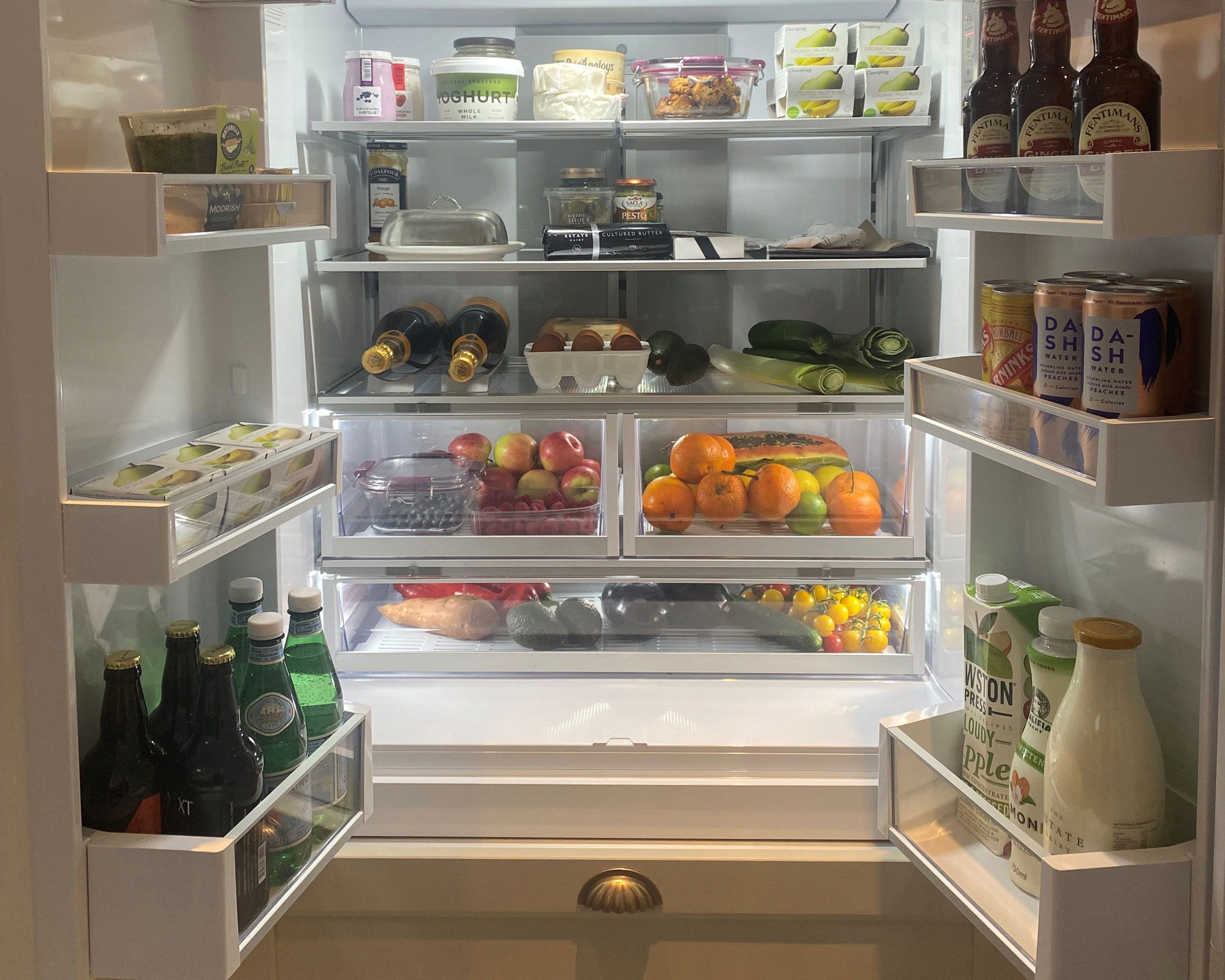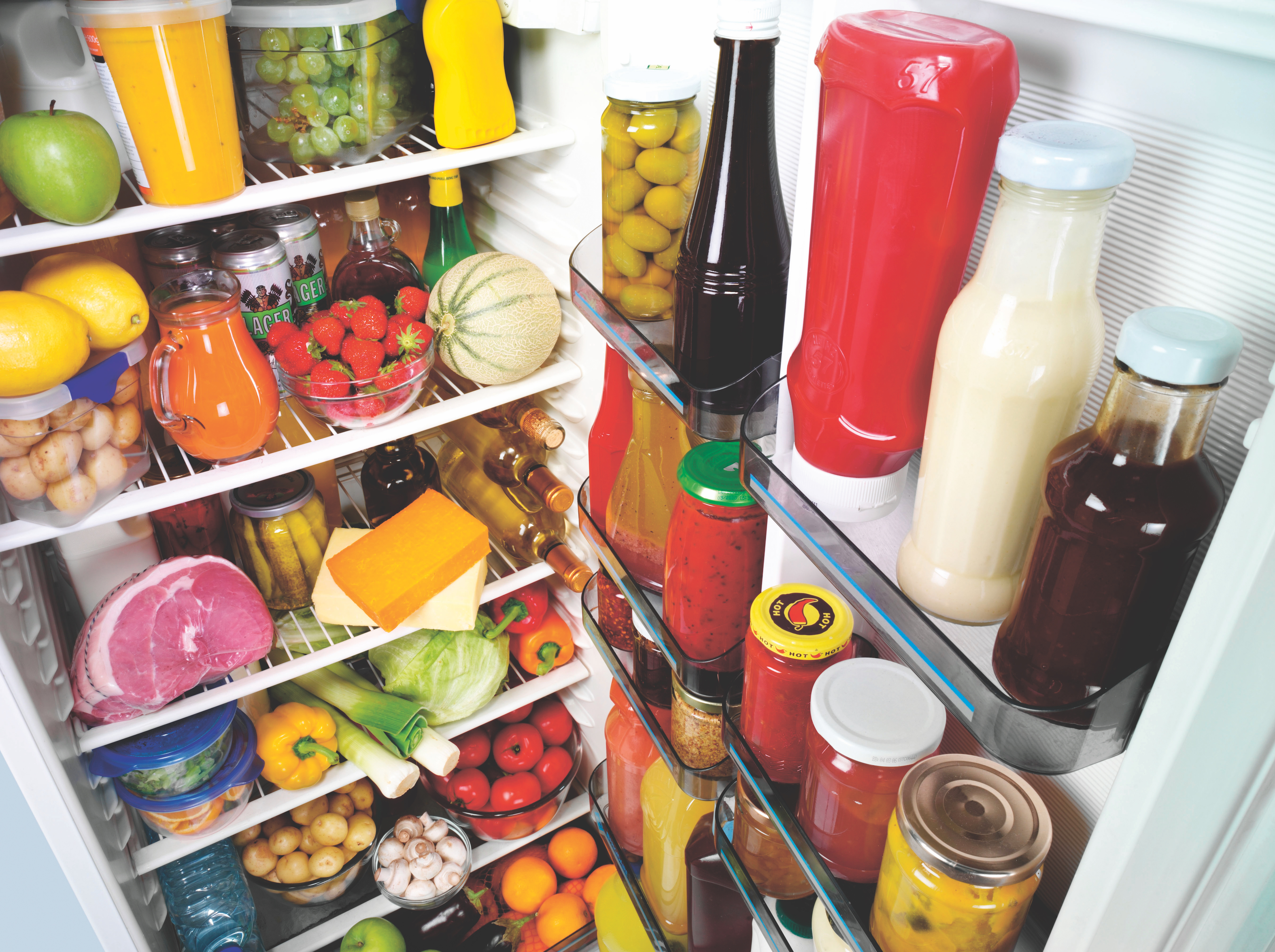Refrigerator organizing mistakes to avoid, according to experts
Optimize your fridge by steering clear of these common organizational errors


Design expertise in your inbox – from inspiring decorating ideas and beautiful celebrity homes to practical gardening advice and shopping round-ups.
You are now subscribed
Your newsletter sign-up was successful
Want to add more newsletters?

Twice a week
Homes&Gardens
The ultimate interior design resource from the world's leading experts - discover inspiring decorating ideas, color scheming know-how, garden inspiration and shopping expertise.

Once a week
In The Loop from Next In Design
Members of the Next in Design Circle will receive In the Loop, our weekly email filled with trade news, names to know and spotlight moments. Together we’re building a brighter design future.

Twice a week
Cucina
Whether you’re passionate about hosting exquisite dinners, experimenting with culinary trends, or perfecting your kitchen's design with timeless elegance and innovative functionality, this newsletter is here to inspire
Cleaning and sorting out the refrigerator is one of those tasks we really dislike, and it's all too easy to put it off.
But organizing the refrigerator so it's more functional and spacious will help us do our bit in avoiding food waste and save us money in the long run.
Awkwardly shaped containers, fresh food that's highly perishable and deep shelves where things can easily get hidden and forgotten make this part of organizing a kitchen difficult, so it's no wonder we often get it wrong.
Refrigerator organizing mistakes to avoid
Appliance experts and professional home organizers say these are the refrigerator organizing mistakes we often make, and have shared tips on how to get your refrigerator under control.

1. Not using the deli drawer
Many modern refrigerators come with a deli drawer beneath the main fridge doors that allows you to adjust the temperature. So, if you have one, it makes sense to use this extra space. Andrew Brown, an appliance repair technician at This Fixed House says sliced deli meats such as ham, turkey, and roast beef should always be stored in the deli drawer to keep them fresher for longer.
2. Too many bulky plastic bins
'I think the most common mistake is believing you have more space in your refrigerator than you actually have,' begins professional organizer Kristy Edwards. 'Plastic "organizers" often take up more space than they should.'
These narrow plastic bins, at Amazon, are ideal for storing cans of soda because they're deep, but don't take up too much valuable real estate. Plus, if you're storing plastic bottles or wine bottles on their side, washable refrigerator mats, at Amazon are a great and inexpensive way to prevent them from sliding around.
Design expertise in your inbox – from inspiring decorating ideas and beautiful celebrity homes to practical gardening advice and shopping round-ups.
3. Overfilling it

There are some surprising items you should be storing in the refrigerator, meaning this key kitchen appliance can get overstuffed easily. 'One of the most important rules when organizing our fridges is to not overfill them,' comments Laura Price, the founder of The Home Organisation.
'An overly full fridge will struggle to keep everything cool and be much less efficient, so always take a good look at what you’re storing. What has expired? What do you know you won’t use?
'What doesn’t actually need to be in the fridge? The more you can take out that doesn’t need to be there, the easier it is to keep a handle on what you have, and for your fridge to run efficiently.'
As Laura says, moving items around and organizing your pantry will mean everything is in its rightful place and prevents your fridge from ending up disorganized. Taking things out and streamlining it will also make cleaning your refrigerator much easier.

Laura Price's goal is to help others experience the benefits of living an organized life after discovering that organized homes brought her peace when raising three children in a hectic home. Hence the birth of The Home Organisation, a dedicated team of professional organizers.
4. Hoarding too many jars
'I always try to limit the number of jars in a fridge as these are often the things that are used once and then forgotten about,' comments Laura Price. 'To prevent this, we keep jars and other similar items in the door where they can be easily seen and accessed.
'It’s too easy to push them to the back of a shelf and never see them again!'
5. Putting condiments in the wrong place

'Condiments belong on the door,' says Kristy. The door is the area with the most temperature fluctuations and condiments will last fine in there, while perishable products like milk are much better kept in the center of the fridge where it's often coldest.
'Anything that doesn't specifically say it needs to be refrigerated should not be,' Kristy adds. Double-check the label and utilize your pantry space for any items that shouldn't go in the refrigerator.
6. Not zoning your refrigerator
Zoning isn't just for living rooms and open-plan spaces; pro organizers say creating zones for different items in your fridge will revolutionize your food storage and make cooking easier and more efficient.
'It’s important to create zones when organizing your fridge so that you can easily keep track of what you have and you don’t end up with nasty surprises hidden at the back!' says Laura Price. 'We use a fairly standard template of dairy products towards the top, moving down through deli items and left-overs, then raw meat and fish at the bottom. Keep these raw items lower down so as not to contaminate any ready-to-eat foods.'
7. Taking eggs out of original packaging

Egg shells are slightly porous and can absorb odors and bacteria from other foods, so it's actually better to keep your eggs in the original carton. It might look more aesthetically pleasing to take them out and store them in plastic containers, but keeping the carton is quicker, and easier, and keeps them protected from any fridge odors.
FAQs
Which shelves in a fridge should food be stored on?
Appliance repair technician Andrew Brown says to extend the shelf life of your food and to avoid cross-contamination, food should be arranged as follows:
Raw Meat: Raw meat and poultry, such as beef, chicken, and pork, should be stored on the lowest shelf, where it is coldest. This prevents any juices from dripping onto other foods and causing cross-contamination.
Dairy Products: Milk, cheese, butter, and yogurt should be stored on the middle shelves of the refrigerator where the temperature is most stable.
Fresh Produce: Most fruits and vegetables should be stored in the crisper drawers to help maintain their texture and prevent them from drying out.
Deli Meats: Sliced deli meats such as ham, turkey, and roast beef should be stored in the deli drawer to keep them fresh.
Beverages: Beverages such as water, juice, and soda should be stored on the upper shelves of the refrigerator.
Eggs: Eggs should be stored in their original carton and placed on a shelf near the back of the refrigerator ideally on the bottom shelf where it is coolest, close to the evaporator coil.
Leftovers: Leftovers should be stored in airtight containers and placed on the upper shelves of the refrigerator.
Condiments: Ketchup, mayonnaise, and other condiments should be stored on the door shelves, where the temperature is less consistent.
A well-organized refrigerator is more functional and far easier to clean, while also helping us to avoid the guilt of throwing food away. Take the time to look at what isn't working for you, for example, if you find that anything that ends up in the crisper drawer just gets forgotten about, store items elsewhere, or pick up a magnetic whiteboard, at Amazon, for noting down expiry dates and reminders.

Millie is a freelance writer and qualified interior designer based in Sheffield. She has many years of experience in the world of content and marketing, and previously worked as the head of Solved at Homes & Gardens. Before that, she worked in SEO at News UK in London and New York. She has a first-class degree in French and Italian from UCL and loves to weave decor into her home that reminds her of time spent living and studying in Bologna. Millie believes a clutter-free space that you love coming home every day is the best secret weapon for our well-being.